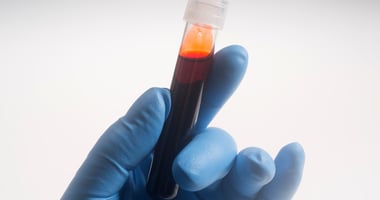Despite best efforts to identify patients at greatest risk of developing psychosis, studies suggest...
Neurocognitive Tests May Enhance Ability to Predict Those Most Likely to Convert to Psychosis
 |
“To our knowledge, this is the largest study of neuropsychological functioning in prodromal, clinical high-risk individuals to date,” Abraham Reichenberg, Ph.D., and Josephine Mollon, M.Sc., of Icahn School of Medicine at Mount Sinai wrote in a related editorial. “The results provide a new reference point for clinicians and researchers by elucidating the profile of neurocognitive deficits associated with the prodrome as well as their potential as risk markers for conversion to clinical psychosis.”
Seidman and colleagues compared the baseline cognitive performance of 689 CHR individuals (including 89 who later converted to psychosis) with 264 healthy controls, collected as part of the second phase of the North American Prodrome Longitudinal Study (NAPLS 2).
They found that the CHR group performed significantly worse than healthy controls on 19 psychological tests combined and on 14 of the 19 individual neuropsychological tests. Additional analysis revealed that people in the CHR group who transitioned to psychosis performed significantly worse on attention/working memory and declarative memory tests than those who did not transition to psychosis. Time to conversion in those who transitioned to psychosis was significantly predicted by high premorbid verbal abilities and impaired declarative memory abilities, the authors reported.
“This pattern of high verbal premorbid ability and impaired memory, coupled with the unusual thought content or delusional ideas and suspiciousness or persecutory ideas, appears to be a pernicious combination predicting conversion and needs replication,” they wrote. “Neurocognitive tests used in concert with other clinical and psychobiological measures may enhance prediction of psychosis or functional outcome.”
For related information, see the Psychiatric News article “CBT for Ultra-High-Risk Patients Lowers Incidence of Psychosis” and AJP articles “An Individualized Risk Calculator for Research in Prodromal Psychosis” and “Personalized Prediction of Psychosis: External Validation of the NAPLS-2 Psychosis Risk Calculator With the EDIPPP Project.”
(Image: iStock/Squaredpixels)





